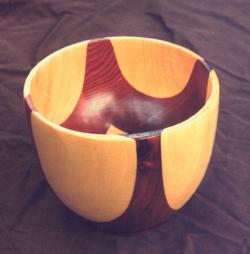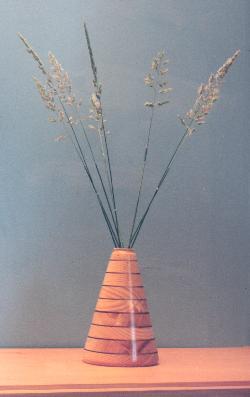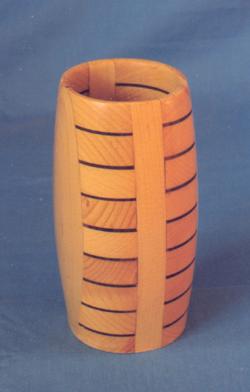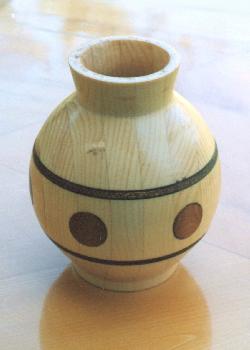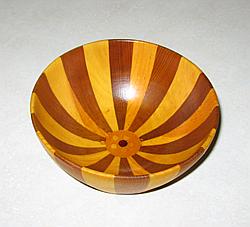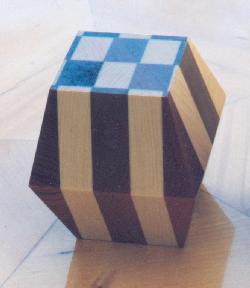Recycling Wood
Turning Bowls & Vases from Scraps
Every woodworker ends up with lots of pieces of wood that seem too small to be used. At least I had a friend with a wood-burning furnace who appreciated them; better than sending them to landfill. Then, I discovered the 19th century banding of Buffard Frères, who turned mechanized marquetry into an art form, using the tiniest scraps of wood, and immediately thought of Piet Mondrian and my scrap wood.
The tools I use are a small wood lathe, a few good saws - Japanese carpenters' saws are unsurpassed for softwoods - a plane, a large vise, and lots of clamps and glue.
The simplest construction is to just stack pieces, with grain directions alternating, and glue. The resulting blocks can be turned with joins vertical, horizontal, or diagonal as below. I find the patterns of side and end grain produced this way to be very attractive, especially with pine finished with tung oil. But, multi-dimensional wood colours are the way to real turning drama. The basic 'rule' is: only clamp in one direction at once. Build up multi-dimensional patterns one dimension at a time, planing each subassembly flat before making it part of the next glue-up. Pie-shaped joins are mostly a recipe for frustration unless you bore out the center and replace it with a plug.
Let the wood tell you what to do, and have fun. The sky's the limit!
John Sankey 1996
other notes on wood working
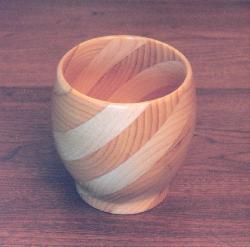
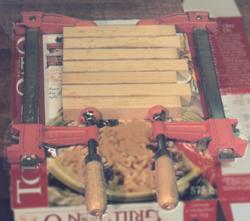
pieces of pine alternate with cherry veneer
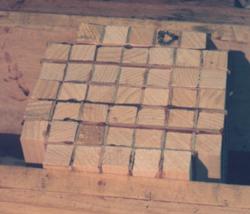
the composite block is sawed into slabs at right angles to the layers,
the new slabs planed flat, then alternated again with cherry
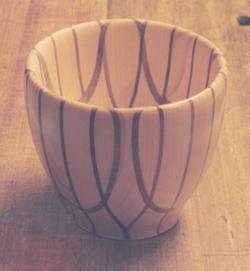
The final bowl
